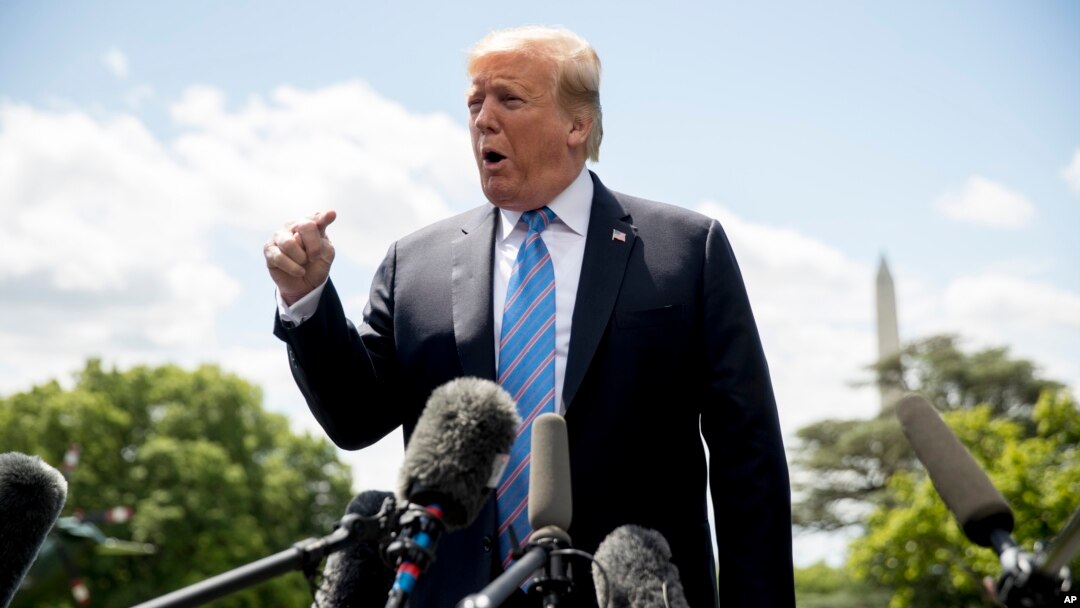Trump sues Facebook to get his account access back immediately while lawsuit proceeds
 VOA
VOAEXCLUSIVE — Former President Donald Trump asked a federal judge Thursday to force Facebook to reinstate him as he seeks to use the social media giant to influence elections in 2022 — and possibly a 2024 bid of his own.
Trump, banned from most major social media platforms for his role in the Jan. 6 Capitol riots, brought a class-action lawsuit in July alleging censorship by Facebook, Twitter, and Google’s YouTube, along with their respective CEOs Mark Zuckerberg, Jack Dorsey, and Sundar Pichai. Thursday’s filing, in the U.S. District Court for the Southern District of Florida, was for a preliminary injunction on Facebook’s ban while he continues to try to get permanent access.
“This preliminary injunction against Facebook seems appropriate to file this week since they’ve been big in the news lately for all the issues they’re facing,” said John Coale, lead counsel of the Trump lawsuits against Big Tech companies. Constitutional Litigation Partnership, a legal entity created by Trump and his allies earlier this year, supports the lawsuit.
Trump’s accounts on Facebook and its subsidiary, Instagram, had a combined following of about 59 million. His legal team argues Facebook is muzzling him while being a major avenue for public discourse and an essential tool for politicians to connect with voters and win elections.
“Zuckerberg and Facebook say it’s the 21st-century public town square; if so, they should uphold the First Amendment,” Coale said. “You can’t have it both ways. They’re like a public utility when it comes to speech.”
Zuckerberg himself said in 2019 that Facebook and Instagram are the “digital equivalent of a town square.”
FACEBOOK EXTEND TRUMP BAN UNTIL 2023
In the preliminary injunction, Trump’s legal team argued that by “cutting him off from the most effective and direct forms of communication with potential voters,” Facebook is “threatening irreparable damage to the Republican Party’s prospects in the 2022 and 2024 elections.”
It also says that Trump faces irreparable harm and significant losses due to being cut off from his donors and merchandising platforms as well as his ability to communicate his views and endorse local candidates.
In the original class-action lawsuit filed against Facebook in July, Trump represents a larger group of people allegedly unfairly censored by improper content moderation policies devised by government and Big Tech working together.
People also read
“Big Tech companies are being used to impose illegal and unconstitutional government censorship,” alleges the suit, which it claims is occurring due to Democrats in Congress “coerc[ing] platforms into censoring their political opponents.”
TRUMP SUES FACEBOOK, TWITTER, YOUTUBE AND THEIR C.E.O.s
Trump said this “coercion and coordination” between Big Tech companies and the government is unconstitutional. The Supreme Court has ruled that Congress cannot use private actors to achieve what the Constitution prohibits it from doing itself.
However, the First Amendment’s freedom of speech protections do not apply to private organizations and platforms, such as Facebook or Twitter, meaning Trump’s lawsuit is unlikely to succeed, according to several First Amendment lawyers.
Trump is challenging whom the First Amendment protections on speech should apply to in his preliminary injunction.
Facebook found that Trump violated its content moderation rules, prompting it to ban him.
Facebook’s independent Oversight Board found that two key posts by Trump on Jan. 6 “severely violated” Facebook’s content moderation standards. Trump’s comments, which Facebook determined were directed at rioters, included “We love you. You’re very special” and another referring to “great patriots.”
The board also found that Trump’s “unfounded” claims of fraud regarding the 2020 election and his persistent calls to action to change the result “created an environment where a serious risk of violence was possible.”
The Oversight Board was announced in 2018 by Zuckerberg as a separate entity that would help the social media giant handle thorny decisions involving content moderation.
Trump’s legal team expects that its case against Facebook and other social media platforms will continue to be fought in the courts for many months before eventually going to the Supreme Court.
“We expect this to go all the way up to the Supreme Court, and they can decide what is free speech, what can be censored, and who gets to decide what is and isn’t allowed online,” Coale said.
Source
Washington Examiner
